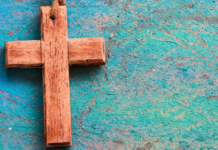
I received an email yesterday from a minister in Lwak, Kenya, a small town near the shore of Lake Victoria. I’ve corresponded with him for several years off and on. Like most friends, I know his wife and children, their ages, and the things of life that are important to them. His email started with its usual greeting, followed by an update of his family and church, a few follow-up questions for me in regard to my son, when my husband and I would be coming to speak at his church, and then, finally, “Can you explain the red cups?”
I must admit, I didn’t know what he was talking about…Dixie Solo Cups? possibly?…. until I searched the web, and I felt sad.
See, in Lwak, the talk is clean water and illnesses from contaminated water or lack of water. Kenya is plagued with high mortality in children but steps are being taken to reduce the numbers. As in many Third World Countries, God isn’t just about Sunday morning – He is the very source of strength to endure the hardships. Christians must live it every day.
The red cup debate?
I read several different social media outlets and viewed statuses to understand who was mad and why? I laughed at those criticizing Christians and calling them hypocrites when the very language of those particular posts was hypocritical. I felt even more saddened by those professing to be Christians ranting about red cups and calling more attention to a Company than Christ.
Just a few days ago, I’d greeted the red cup with enthusiasm and excitement as I sipped my Soy Chai Latte and stepped out into the rain. The redness brought an infused excitement – Christmas is just around the corner!
No one has to tell me Merry Christmas or write it on my cup. Because I will say it loud and clear and write it on my own cup. Christmas started it all…Christmas pointed us in the direction of the Cross…it was the catalyst to save the world.
And while it has become commercialized, Christmas yard blow-ups, Christmas trees, Christmas lights, Christmas sweaters, Christmas cookies, Christmas candy, Christmas presents, and Christmas dinner, any way you slice it, it is about Christ. You can’t take His name out of it. The X is the symbol for Chi which is often used to abbreviate the word Christ because it begins the first letter of Christ’s name in Greek (Χριστός). It is all about Him whether people want to acknowledge it or not.
The wonderful part of Christ is He knew Who He was. He didn’t have to prove anything. People either got it or they denied it. In Luke 9:3-5, Jesus instructed his disciples, “When you travel, don’t take a walking stick. Also, don’t carry a bag, food, or money. Take for your trip only the clothes you are wearing. When you go into a house, stay there until it is time to leave. If the people in the town will not welcome you, go outside the town and shake their dust off of your feet. This will be a warning to them.” So, you certainly have a right to boycott Starbucks if you like. And you certainly have a right to drink your Chai Latte and savor the season.
Consider this – “RED” is a strategic color of the Bible.
- In the Hebrew language the word “Adam,” the name of the first human life, can mean “man” or “red.”
- God chose to become a man to offer His blood in exchange for sin. Blood of course being the color “red.”
- Jesus’ spilled blood gave us life.
- His Birthday is where it all began.







